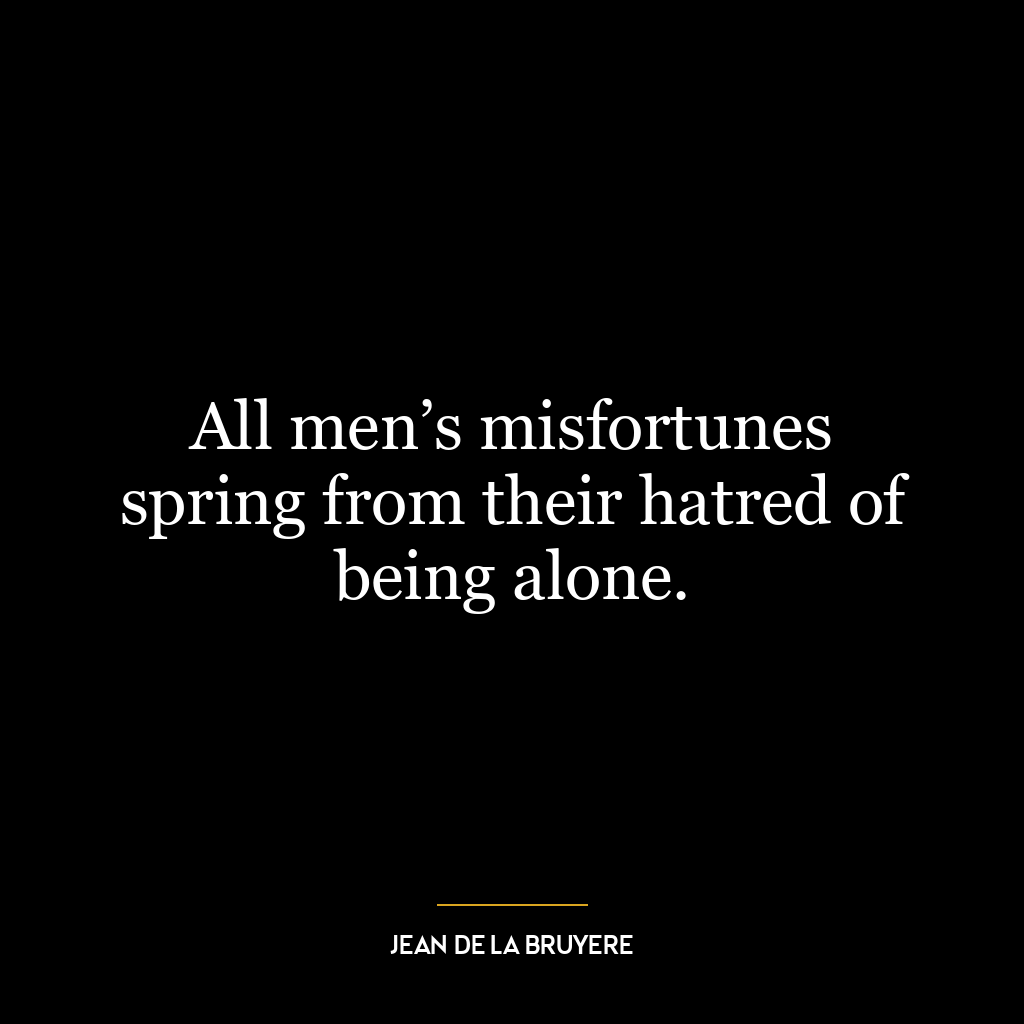Lonely people console themselves with self-absorption or curiosity.
This quote suggests that loneliness can lead to two different reactions: self-absorption or curiosity. Self-absorption implies a focus on one’s own feelings, thoughts, and experiences to the point of being oblivious to others. It’s a form of coping mechanism where lonely individuals immerse themselves in their inner world as an escape from their solitude.
On the other hand, curiosity represents an outward-looking perspective. This could mean seeking knowledge about the world around them or showing interest in other people’s lives and experiences. It is a proactive way of dealing with loneliness by engaging with external stimuli rather than dwelling on one’s isolation.
The concept introduced by this quote is highly applicable today, especially considering the rise in reported feelings of loneliness due to social media use and periods of quarantine during pandemic times. People may respond by becoming more self-absorbed – constantly reflecting on their own lives while neglecting real-time relationships and interactions. This could potentially lead to further isolation and even mental health issues.
Alternatively, they may choose to foster curiosity – learning new skills online, exploring different cultures through documentaries or books, or initiating virtual conversations with people from various backgrounds. This approach can help alleviate feelings of loneliness by creating connections and broadening horizons.
In terms of personal development, understanding this dichotomy can be beneficial for those who often feel lonely. If they realize they’re leaning towards self-absorption as a coping mechanism for their solitude, they might want to consciously shift towards fostering curiosity instead – making an effort to learn new things about the world outside their immediate experience which can ultimately help them feel more connected.















